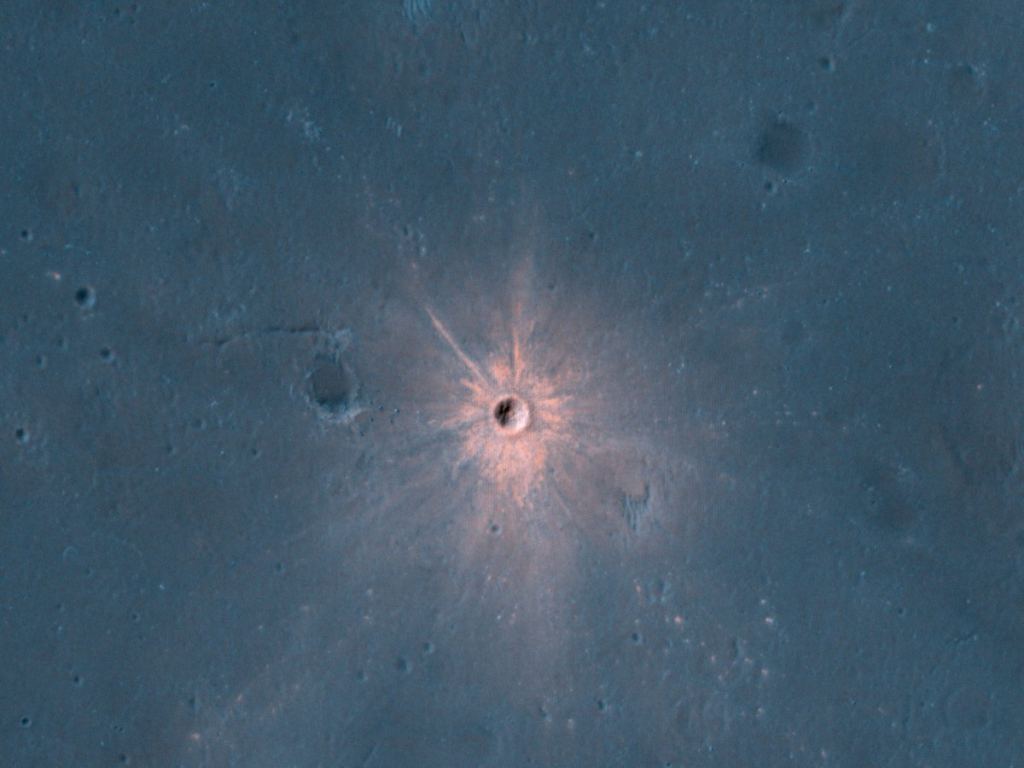Bright Ejecta Reveals a Fresh Crater on Mars
By Andy Tomaswick
Meteors hit much harder on Mars than they do on the Earth. Lack of atmosphere obviously contributes to that, but its proximity to the asteroid belt also makes the red planet a more likely target for some gravitationally disturbed rock to run into. Now that we have a satellite infrastructure consistently monitoring Mars, we are able to capture the aftermath of what happens when it is pummeled by space debris, and the results can be dramatic.
One powerful tool in that impact hunting toolkit is the Mars Reconnaissance Orbiter (MRO). It has a variety of instruments on it that make it possible to both track down areas of interest and then follow up with high resolution imagery, incluidng HiRISE, the camera that took the picture above. That is exactly what happened with a new crater that the satellite noticed on one of its flybys.
Credit: Anton Petrov YouTube Channel
The new crater shows up as a bright spot, which scientists theorize might be shallow subsurface materials that were blasted into the open on impact. This contrasts with many new craters, which show up as dark spots as dust from the ejecta is covered in a darker material. Those bright spots are significantly bright in the attached image though, as it was color enhanced in post processing.
The new crater is 13m in diameter, and shows up spectacularly on the newly released image. It goes to show just how active our solar system still is, and how a little rock can make a big impact when there’s little to nothing to stop it.
Learn More:
HiRISE – A New Impact Crater with Bright Ejecta
UT – The Colorful Walls of an Exposed Impact Crater on Mars
UT – The “Happy Face Crater” on Mars Has Been Changing Right Before Our Eyes
Lead Image:
New HiRISE Picture of the Day showing a 13m new crater on Mars.
Credit: NASA / JPL / UArizona
The post Bright Ejecta Reveals a Fresh Crater on Mars appeared first on Universe Today.

May 17, 2021 at 05:11PM
via Universe Today read more...

Post a Comment